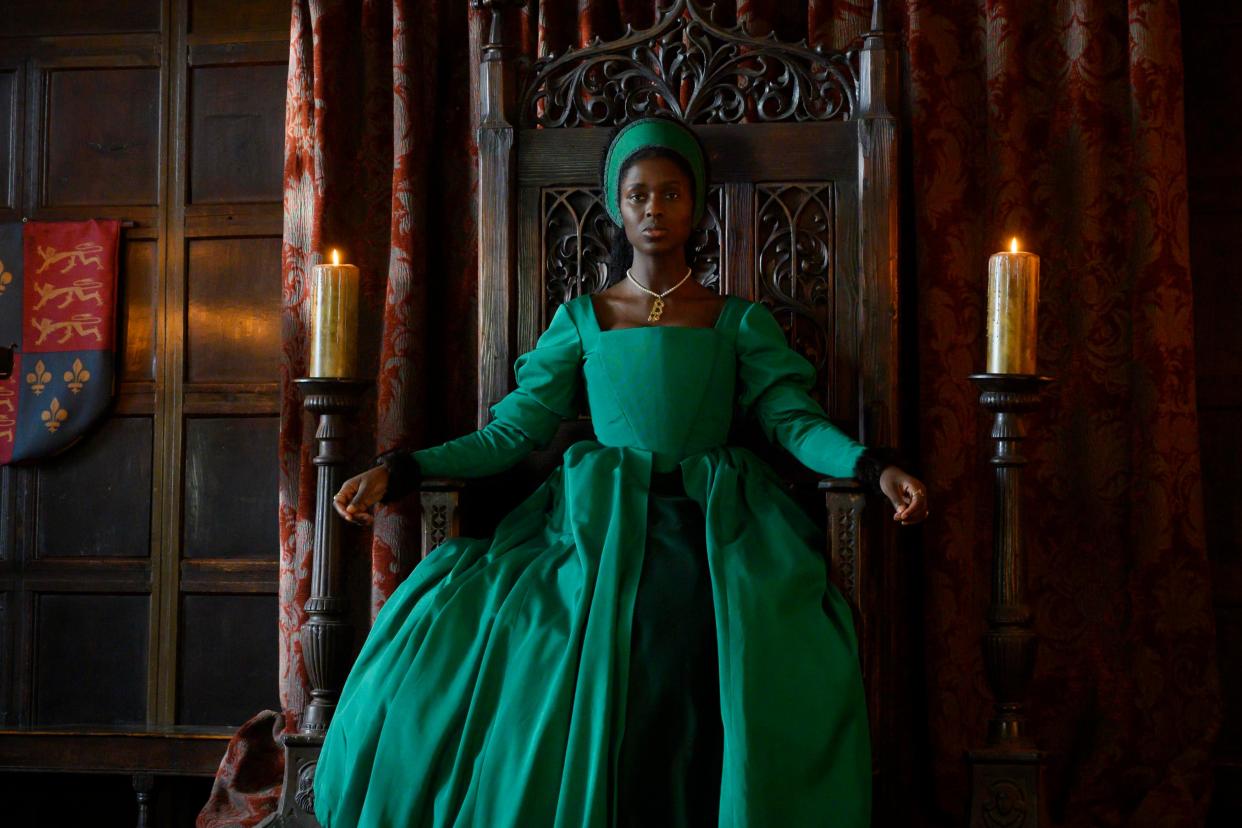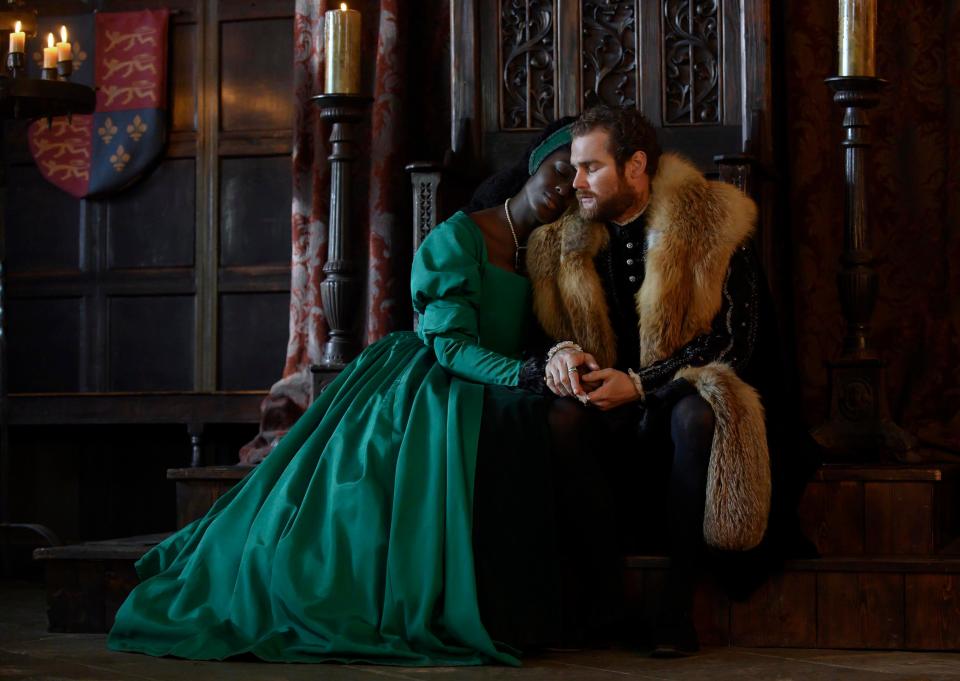Anne Boleyn on Channel 5 review: Jodie Turner-Smith shines in revisionist spin on the Tudor queen’s final days

Jodie Turner-Smith as Anne Boleyn in Channel 5’s new series
(Parisa Taghizadeh)When it was announced last year that Jodie Turner-Smith would become the first black actress to take on the role of Anne Boleyn in a new drama, the news sparked debate in all the usual corners of the internet.
While theatre productions have long embraced a more inclusive approach, the conversation around colour conscious or, as the team behind Channel 5’s series have described it, identity conscious casting for period pieces on television and in film somehow remains contentious. For every online commentator celebrating the Queen & Slim star’s ground-breaking new role, you might find another bemoaning a lack of historical accuracy, as if we’d been so far starved of all-white period dramas, or were somehow lacking more conventional tellings of Anne’s story.
Happily, Turner-Smith’s striking performance as the Tudor queen should be more than enough to silence any nay-sayers. Backed by a strong supporting cast - including I May Destroy You’s Paapa Essiedu as her brother George Boleyn and Too Close’s Thalissa Teixeira as her faithful confidante Madge Shelton - her nuanced depiction of Anne proves she’s one of our most exciting talents.

The first episode of this three-part series from Fable Pictures (the production company responsible for seven-time Bafta nominee Rocks, a gorgeous portrait of a group of teenage girls in East London) begins two years into Anne’s marriage to Henry VIII (Mark Stanley). A title card tells us that the following drama, written by Eve Hedderwick Turner, has been “inspired by truth - and lies.”
It’s a nudging reminder that this is very much a 21st century, revisionist take on a story we think we know inside out, which has in fact been shaped by nearly half a millennium of misogyny. The Anne we meet is steely and sharp-tongued, with a habit of speaking in cagey extended metaphors; she is not the calculating schemer of history books but is certainly prepared to use her soft power to wield influence over the King when it comes to causes she cares about, from religious reform (Hedderwick Turner’s script reminds us that Anne supported William Tyndale and his English translation of the Bible, which would allow her subjects to “read the word of God in their own tongue”) to international affairs.

That power, though, is entwined with her potential to produce an heir: as a crabby Thomas Cromwell (Barry Ward) doesn’t fail to point out, her “influence lies in her belly, not her brain.” If this Cromwell emerges as a lurking villain prone to whispering in corners, in contrast to Wolf Hall’s meditative, sympathetic Cromwell, that’s because this spin on Tudor history is very much grounded in Anne’s perspective. We see the power plays of Henry’s court through her eyes, and feel her panic as she sees herself being outmanoeuvred - by Cromwell, by her gaslighting husband and by the anodyne Jane Seymour (Lola Petticrew), her lady-in-waiting.
Director Lynsey Miller cranks up the tension in these moments with a series of ominous, lingering close-ups, and the episode ends up falls somewhere between lavish costume drama (it looks sumptuous, and the square-necked dresses in jewel tones feel weirdly covetable) and domestic noir. Even if all the symbolism and foreshadowing sometimes gets a little heavy handed, it certainly manages to pull off an impressive feat: making one of the most retold episodes of English history feel fresh.
Anne Boleyn continues on Channel 5 on June 2 at 9pm
Read More
Londoner’s Diary: End social media guilt, says Scarlett Curtis
Anne Boleyn’s Mark Stanley: how I managed to empathise with Henry VIII
Londoner’s Diary: Houseplants are the future for gardeners, says Wong

 Yahoo News
Yahoo News 
